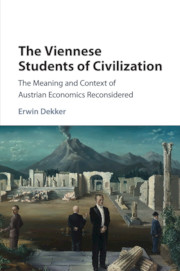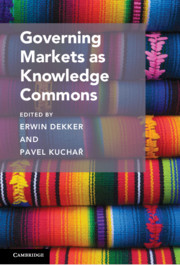Jan Tinbergen (1903–1994) and the Rise of Economic Expertise
Jan Tinbergen was the first Nobel Prize winner in Economics and one of the most influential economists of the 20th century. This book argues that his crucial contribution is the theory of economic policy and the legitimation of economic expertise in service of the state. It traces his youthful socialist ideals which found political direction in the Plan-socialist movement of the 1930s for which he developed new economic models to combat the Great Depression. After World War II he was able to synthesize that work into a theory of economic policy which not only provided a lasting framework for economic policy around the world, but also secured a permanent place for economic experts close to government. The book then turns to an examination of his attempt to repeat this achievement in the development projects in the Global South and at the international level for the United Nations.
- The first full biography of Jan Tinbergen, one of the most influential economist of the 20th century
- Provides a unique personal perspective at the development of economic expertise at the national and international level
Reviews & endorsements
'A fascinating account of the life and work of Jan Tinbergen, who shared the first Nobel Prize in Economics in 1969 for his work on economic planning and business cycle dynamics. His life work shaped and continues to shape the way economics and theory-guided economic policy is done. The author presents an engaging intellectual history that places the evolution of his technical work and policy analyses in a network of ideas and thinkers who addressed the biggest social questions of their day in order to improve human welfare. It exposits the intellectual and moral contributions of a pioneer of modern economics.' James J. Heckman, University of Chicago and Winner of the Nobel Prize in Economics, 2000
'Erwin Dekker’s book lies in the best traditions of biography - uncovering secrets, revealing enigmas and tensions, and giving us new insights into a central figure in economic science and policy actions of the twentieth century. This wide-ranging account shows Jan Tinbergen actively engaged with the political, cultural and economic experiences from the Great Depression of the 1930s to later development projects. He emerges as both technocrat and idealist, both bureaucrat and politician, and both modest and insistent enough to create antagonisms.' Mary S. Morgan, London School of Economics
'To anyone who thinks of Tinbergen as just an econometrician who engaged in building macro-econometric models, this book will be a revelation; it shows Tinbergen as an idealist, committed to building a better society, and not just an economic expert. I strongly recommend it.' Roger Backhouse, University of Birmingham
‘Tinbergen has been one of the most influential economists of the 20th century, and not only in the economics profession. Dekker has produced a fine portrait of him. He succeeds very well in bringing Tinbergen to life, both the expert and the idealist.’ Ivo Maes, History of Economic Ideas
‘Dekker’s biography opens up many new perspectives worth investigating. It is now up to historians of macro-econometrics/macroeconomics, but also to historians of science, to seize this abundant material to understand the complexity of the ambitions and achievements of the pioneers of econometrics.’ Ariane Dupont-Kieffer, The European Journal of the History of Economic Thought
Product details
June 2021Adobe eBook Reader
9781108857048
0 pages
This ISBN is for an eBook version which is distributed on our behalf by a third party.
Table of Contents
- Jan Tinbergen (1903-1994) and the rise of economic expertise
- Preface
- Acknowledgments
- Part I. Becoming an Economic Expert:
- 1. The construction of peace
- 2. A progressive education
- 3. The bourgeois socialist
- 4. From Ehrenfest to the econometric society
- 5. Hendrick de Man and Jan Tinbergen
- 6. Macro-dynamics and the problem of unemployment
- 7. The rise of the Volkspartei (People's Party) and the economics of the general interest
- Part II. The Years of High Expertise:
- 8. From The Hague to Geneva: the world order of the League of Nations
- 9. Fascism at home
- 10. Tinbergen's theory of economic policymaking
- 11. The expert in the model, the economist outside the model
- Part III. Global Expertise:
- 12. Opening up Vista's: India and the world
- 13. Development economics on paper
- 14. Development planning on the ground: Tinbergen in Turkey
- 15. Sometime the twain shall meet: the optimal order
- 16. Expertise far from home
- Part IV. The Limits of Expertise:
- 17. Measuring the unmeasurable: welfare and justice
- 18. Governing the ungovernable: can we govern the planet
- 19. Making peace, finding peace.

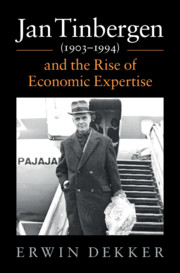
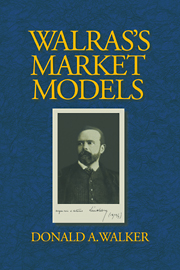
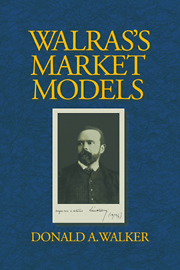



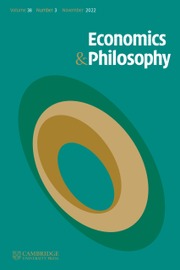
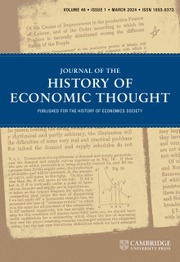

.jpg)
